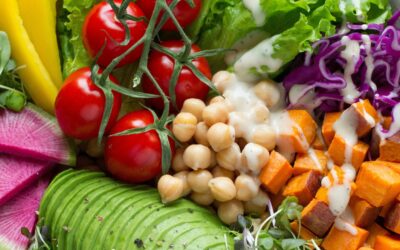This past week I got to go on a short trip to a fabulous and exotic location: Wisconsin. I promise you that it was way more exciting than it sounds! As students, we get a lot of information on different supplement companies and the products that they carry; this was one of those opportunities. Standard Process, a whole food nutritional supplement company, invited students out to visit its manufacturing plant and farming operation, so that we could all get a behind the scenes peek into what goes into making their products.

While it was great to see the operation and find out more about the company, I would have to say that my biggest take away was the information I learned about organic farming. Though I try to buy local organic produce whenever it is feasible, I don’t think that I fully grasped what it meant to be “certified organic” until seeing how the farm operated first hand, I am a city girl after all. After I got back, I looked up more information and came across a quote about organic farming that could easily be applied to how we are taught to treat the human body.

“In organic farming, a mind shift is essential. You must go from treating problems to treating the causes of the problems and recognize that every decision that you make will affect other aspects of your system.” –Brad Brummond, North Dakota State University *
There are different ways to help cultivate healthy plants and keep the pest population down without the use of pesticides. Crop rotation plays a major role in this when you go multiple seasons in between planting a specific crop in a particular area of soil, the variety of plant grown there over time help to reduce pest population and keep the soil happy. Our tour guide made a great analogy, “If you ate only potatoes every day for the rest of your life, what kind of shape would you be in?”
It’s variety that keeps you healthy. The farm also made use of cover crops, small quick growing plants like clover in between planting crops for harvest. This improves soil quality by keeping it photosynthetically active, increasing the nitrogen content in the soil, and keeping the population of weeds down. The farm we visited utilized compost for fertilization. They also had little areas of native plant growth and birdhouses to encourage the residence of animals that eat pests. I think that the experience may have increased my passion for locally grown organic produce.
*Nationwide S. Sustainable Agriculture Research and Education Program – Grants and Education. Sare.org. https://www.sare.org/. Published 2019. Accessed October 29, 2019.




0 Comments